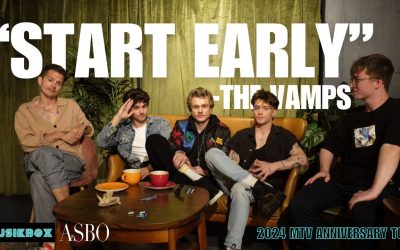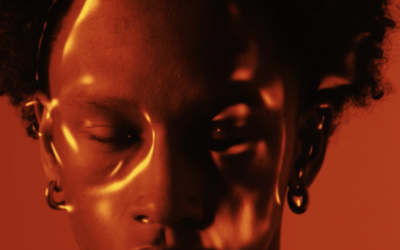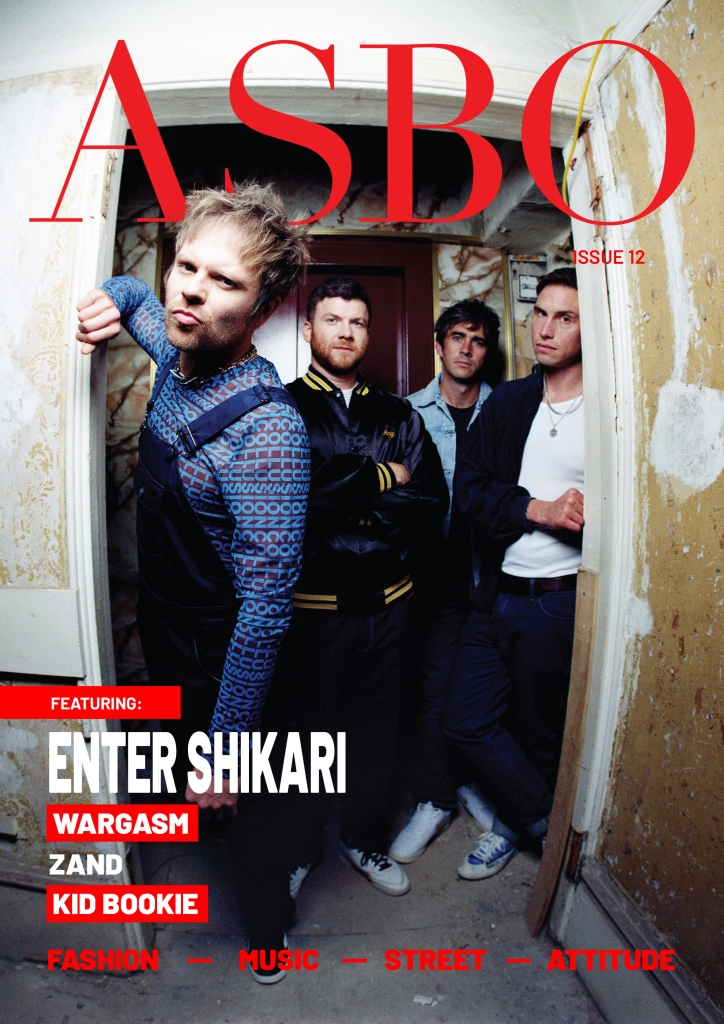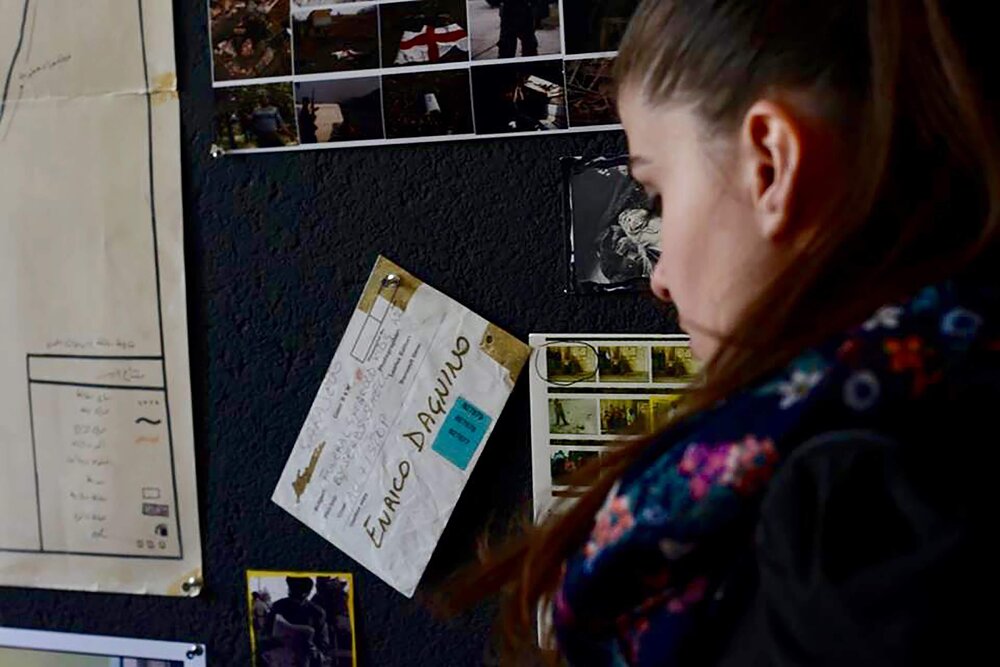
Enrico Dagnino’s exhibit “Untitled” is unveiled in Sarajevo during the 2016 War Art Reporting and Memory (WARM) Festival. (Photo: Tatjana Milovanović)
Two sisters with a shared childhood conjure up entirely different memories about the place they call home. Their perceptions are clouded by the realities of war. One woman notes her disdain for Sarajevo while her sister expresses love for the very place in which they both grew up, although it was painted red and besieged by war. Both women have adapted and continue to change while these memories shape their actions and emotions. These are their truths and they unravel in their fluid and unstable reality, remaining timeless – indicative of what was, but also what can be.
Memory acts as a pivotal foundation in the ephemeral nature of the social and political interactions that unfold in post-conflict settings. Capturing the sisters’ truths holds these socio-political acts accountable through the action of remembrance. Remembrance also provides the critical groundwork for post-conflict transitional processes such as preserving truth, maintaining historical facts, and creating a space for the prevention of future conflict.
The WARM Foundation’s Inception
In April 2012, on the 20th anniversary of the siege of Sarajevo, hundreds of journalists reunited in Bosnia’s capital city for a week-long event initiated by French photojournalist, war correspondent, and documentary filmmaker, Rémy Ourdan and other foreign correspondents who covered the war in Bosnia from 1992 to 1995. This event was the first of its kind: never before had war reporters collectively returned to the place where they had previously covered conflict, to find old friends and reconnect with the country. However, this event was meant to serve a greater purpose—to officially announce the launch of the War Art Reporting and Memory Foundation (WARM), an organisation dedicated to addressing contemporary and past conflicts through artistic expression that promotes a culture of remembrance.
WARM’s founder, Rémy Ourdan, made the decision to establish the Foundation following a marked career covering war and post-war eras in countries across the globe, including Croatia, Rwanda, Burundi, Congo, Eritrea-Ethiopia, Kosovo, Sierra Leone, Israel-Palestine, Afghanistan, Iraq, Mexico, Egypt, Libya, Central African Republic, and Bosnia and Herzegovina. Now, WARM comprises an incredible network of world-renowned artists, war correspondents, filmmakers, academics, and activists. The network includes members such as Christiane Amanpour (journalist at CNN), Janine Di Giovanni (journalist and author), Ron Haviv (Photographer), Gregory H. Stanton (President of Genocide Watch and research professor at George Mason University), and Danis Tanović (filmmaker).
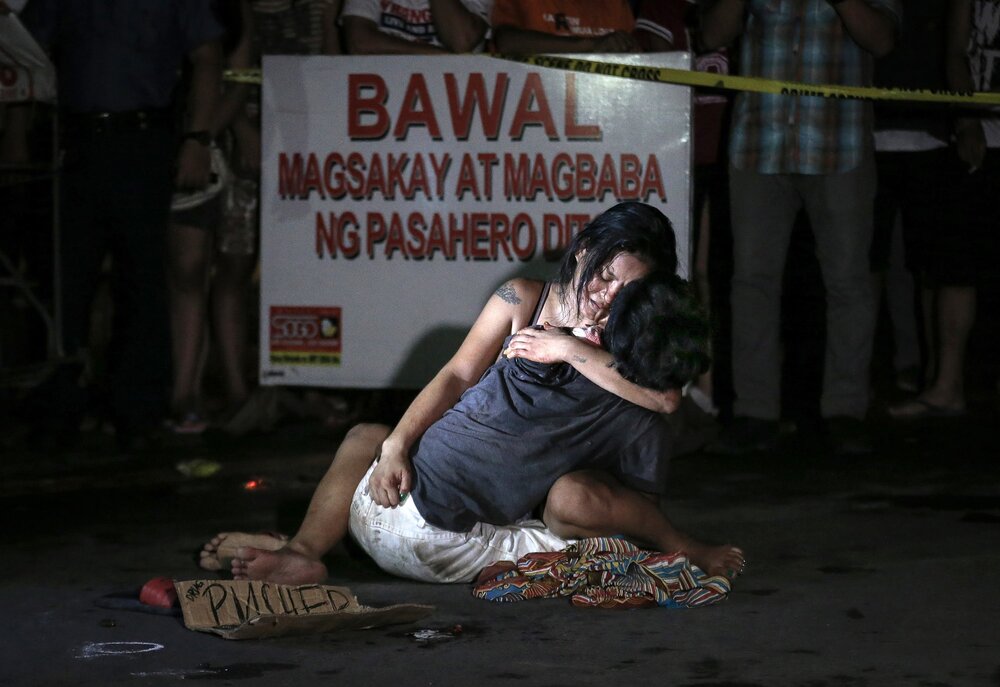
In order to develop the Sarajevo branch as an international hub for dialogue and collaboration among journalists, activists, scholars, and other stakeholders that are dedicated to combating and preventing war and genocide, WARM needed a strong local partner. Velma Šarić, Founder and President of the Post-Conflict Research Centre (PCRC) and a prominent figure in the world or conflict reporting, was, thus, elected as the Foundation’s Sarajevo project manager and PCRC now plays a primary role in the planning, coordination, and implementation of WARM’s Sarajevo-based activities.
The WARM Festival
The annual WARM Festival has become one WARM’s most popular events. Together, WARM and PCRC have successfully organized five international WARM Festivals, bringing together more than 1,000 attendees from the Middle East, Europe, and the Americas. The festival’s résumé now includes 54 films premiers, 32 exhibitions launches, and more than 50 conferences, workshops, and discussion panels.
“The festival’s first year was a big one for us and drew a lot of media attention. We managed to fly in around 120 Libyan freedom fighters from Tripoli to Sarajevo for the premier of Florent Marcie’s film, Tomorrow Tripoli – The Revolution of Rats. It was a massive undertaking for us, from organizing logistics to obtaining visa approvals, but it put WARM on the map,” explains Tatjana Milovanović, PCRC’s manager of field operations.
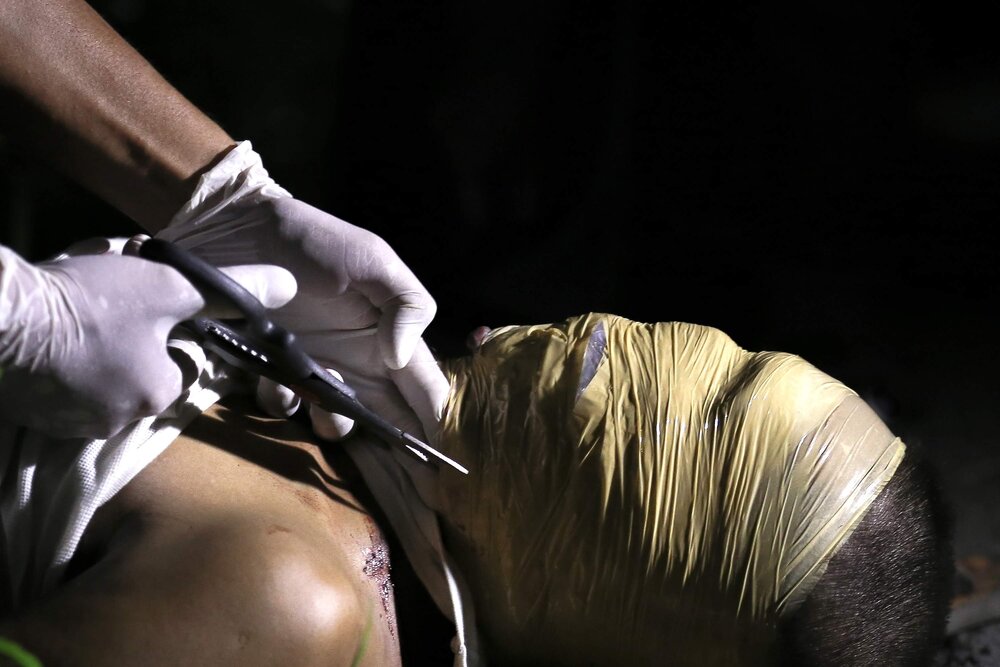
In its subsequent years, the festival has featured the work of many notable artists from around the world. In 2016, Enrico Dagnino’s photography exhibition “Untitled” was unveiled, revealing images that captured the photojournalist’s lived experience working in the field of war. Alisa Kovalenko’s documentary film “Alisa in Warland” was also debuted in 2016. The film tells the story of the twenty-six-year-old film student from Kiev who decided to record the escalating tensions that were erupting throughout Ukraine and follows her experiences after joining a group of Ukrainian soldiers on the front lines of war where she was forced to endure a myriad of perilous encounters with separatist snipers, mortar shell explosions, and capture and interrogation by pro-Russian forces.
“The Night shift”, a photography and video exhibition that displays the extreme violence caused by the Filipino government’s war on drugs, also made its Balkan debut during WARM Festival 2017, featuring work from twelve night shift regulars: Ezra Acayan, Alyx Arumpac, Dante Diosina, Kimberly Dela Cruz, Vincent Go, Eloisa Lopez, Carlo Gabuco, Brother Jun Santiago, Basilio Sepe, Jes Aznar, Raffy Lerma, Jay Ganzon, and Linus Escandor.
In addition to featuring the stories of international conflict, Milovanović expresses the importance of incorporating perspectives on the Western Balkans and on the conflicts that happened in this region. “We would like to promote things that matters to the citizens of Sarajevo, this country, and this region and that help us to deal with our past in a constructive way. WARM Founder Remy Ourdan’s ‘The Siege’, a film about resistance, survival, and coexistence in Sarajevo during the war, sparked vibrant discussion amongst locals.
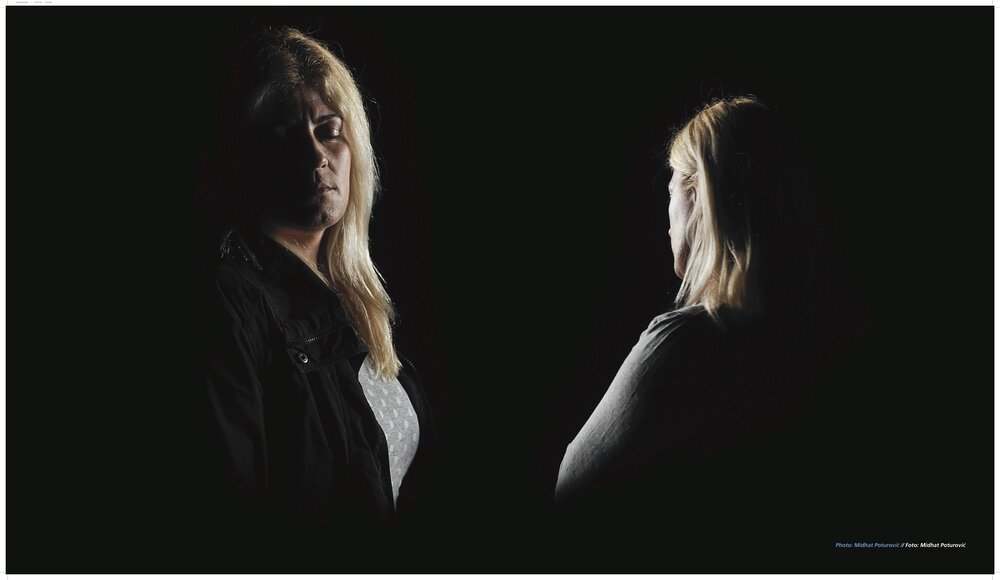
“The active contribution to and discussion among Festival attendees about these important topics is what makes this Festival truly unique, And the topics presented don’t have to be directly related to war,” Milovanović explains. “For example, we screened Srđan Šarenac’s Two Schools, film that details the issue of segregation within the Bosnian school system.
This is a contemporary issue that, although tied to our history of conflict, is one that could potentially lead to future conflict. It is, thus, an important subject to address.”
“My Body: A War Zone”, an exhibition produced by PCRC and PROOF: Media for Social Justice was also among the projects feature during the WARM Festival that broached a topic of utmost importance to Bosnia’s transitional justice and peacebuilding processes.
The exhibition, which features the portraits and testimonies of survivors of wartime sexual violence not only from Bosnia, but also from Nepal, Colombia and the Democratic Republic of the Congo, aims to bring individual stories of injustice to the broader public in an effort to overcome the silence and stigma associated with crimes of sexual violence. The exhibition is also aimed at replacing the culture of impunity for sexual violence with one of deterrence.

The Future of WARM
With 2018 coming to a close, WARM and PCRC will look to the coming summer to continue documenting and disseminating the stories of today’s conflicts with launch of the 2019 WARM Festival on Contemporary Conflicts, which will take place from the 8 – 13 July and will feature exhibitions, books, films, discussions, and interactive workshops on why we must remember.
This coming festival will additionally provide more insight into WARM’s long-term strategy to establish the WARM Centre where archives and documentation on contemporary conflicts can be available to students, researchers, and those interested in learning more about conflicts around the world. In conjunction with this effort, PCRC plans to incorporate more youth representation and participation to the 2019 agenda by implementing a WARM Academy for local, regional, and international students and by organizing a youth multimedia showcase that features work of up-and-coming journalistic talent from Bosnia.
Sewing the practices of memory and truth-telling into the fabric of a post-conflict society can result in a long-lasting peace. A culture of remembrance does not mean we must dwell on the past, but is a mechanism so that we “Never Forget” our past mistakes and do not repeat them as we move forward and build our future.






